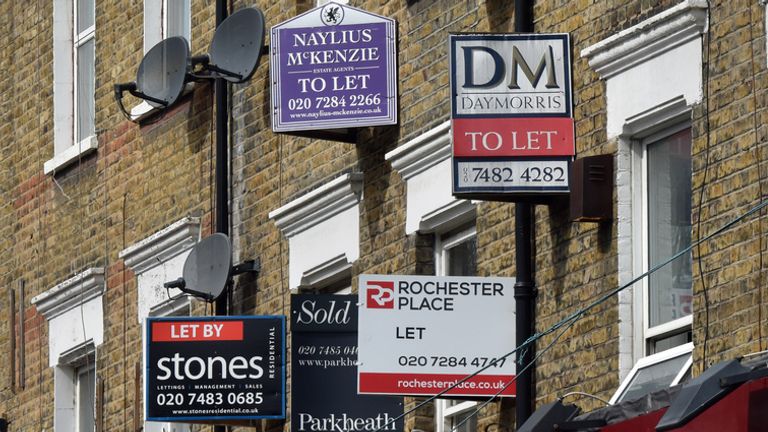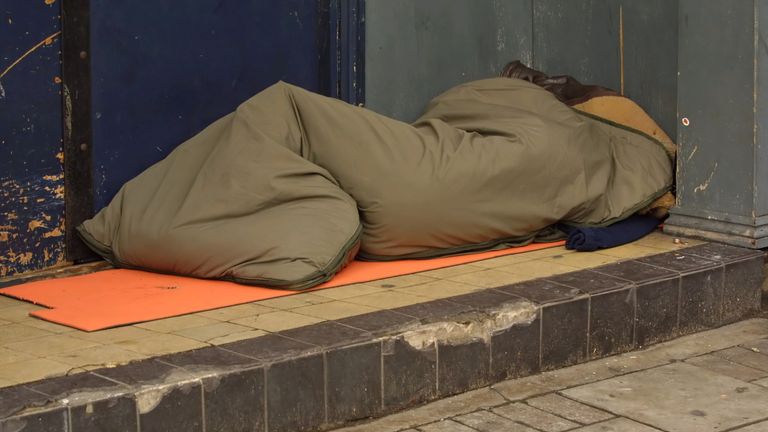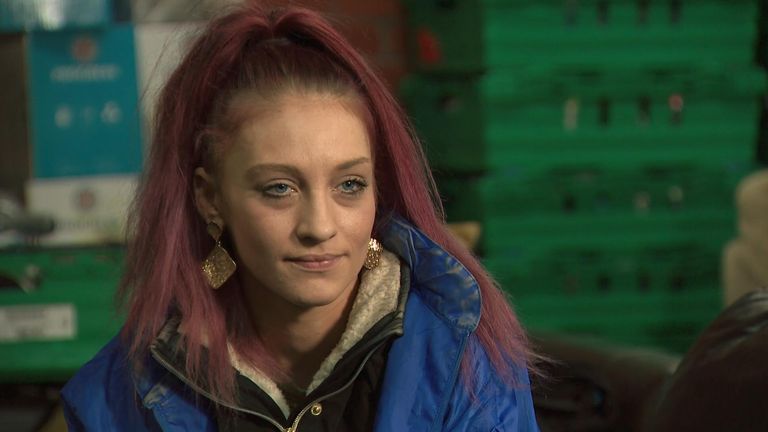Eviction ban in England and Wales extended by four weeks
Ministers had come under pressure to extend the ban, amid warnings thousands of renters could lose their homes otherwise.
Friday 21 August 2020 16:01, UK
The eviction ban in England and Wales has been extended by four weeks, the government has announced.
Ministers had come under pressure to extend the ban beyond Monday - when it was due to end - amid warnings thousands of renters could lose their homes otherwise.
The measure was announced in March because of the coronavirus pandemic.
In Scotland and Northern Ireland, the ban has been extended to March.
Housing Secretary Robert Jenrick said: "I know this year has been challenging and all of us are still living with the effects of COVID-19. That is why today I am announcing a further four-week ban on evictions, meaning no renters will have been evicted for six months.
"I am also increasing protections for renters - six month notice periods must be given to tenants, supporting renters over winter.
"However, it is right that the most egregious cases, for example those involving anti-social behaviour or domestic abuse perpetrators, begin to be heard in court again; and so when courts reopen, landlords will once again be able to progress these priority cases."
Labour leader Sir Keir Starmer welcomed the "11th hour U-turn", but said the ban should remain in force until a "credible plan" is in place to stop anyone losing their home because of the pandemic.
"Such a brief extension means there is a real risk that this will simply give renters a few more weeks to pack their bags," he said.
Citizens Advice chief executive Dame Gillian Guy called on ministers to work with it and others to "put in place a series of protections which will help those who've built up rent arrears get back on their feet".
But the National Residential Landlords Association criticised the "blanket extension", saying it "satisfies no one".
Chief executive Ben Beadle said: "Landlords have been left powerless in exercising their legal right to deal with significant arrears unrelated to COVID-19, antisocial behaviour and extremely disruptive tenants who make life miserable for their neighbours and housemates.
"Private landlords cannot be expected to foot the bill for government failure. There must now be a plan to support households to pay their bills and to compensate landlords fully for their lost income."
Charities had voiced fears of mass evictions around Christmas if the ban is not extended.
They said that if the ban ended without extra protection, there could have been a "devastating homelessness crisis", with tens of thousands of outgoing tenants potentially unable to find or access affordable homes.
According to housing charity Shelter, by the end of June a total of 174,000 renters had been warned by their landlord that they are facing eviction.
Shelter added that 58,000 moved out after being asked to leave during the COVID-19 lockdown.
The charity estimates that almost a quarter of a million renters were in rent arrears by the end of June.
Reacting to the extension, Shelter said ministers "must now use this short window of time wisely to put proper safeguards in place for renters".
It added: "A bullet may have been dodged with this extension, but as soon as Parliament returns, it must give judges extra powers to stop renters being evicted because of 'COVID-arrears'."
The District Councils Network estimates that up to half a million people could be at risk of eviction in the months to come.
The British Medical Association has also expressed concerns, saying ending the ban could lead to a surge in coronavirus cases if homelessness increases, with homeless people more likely to have health conditions that increase their vulnerability.







